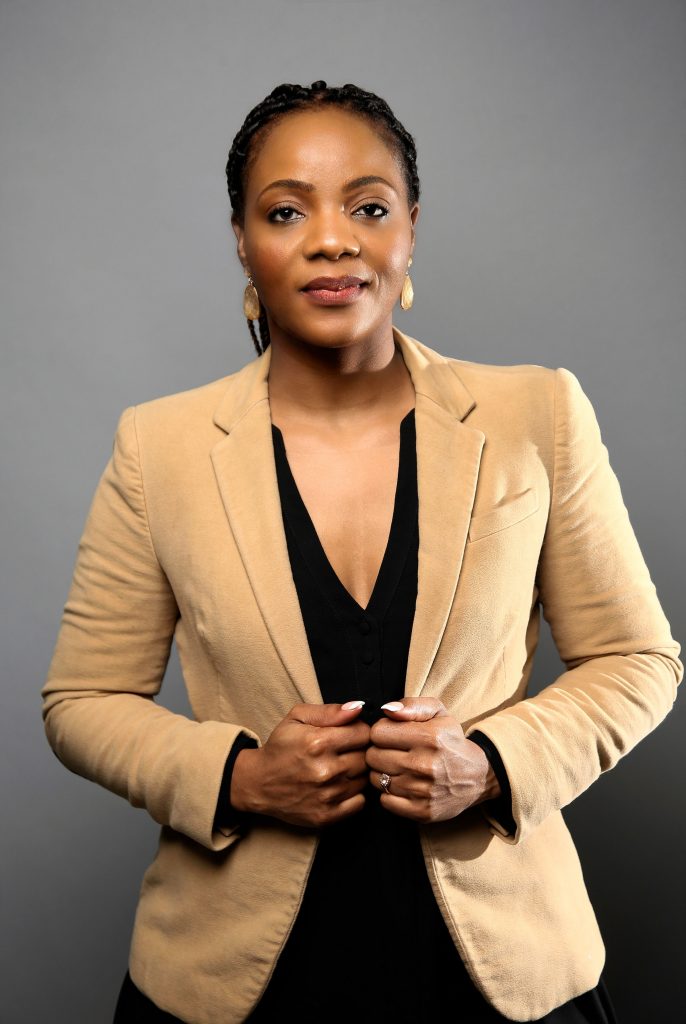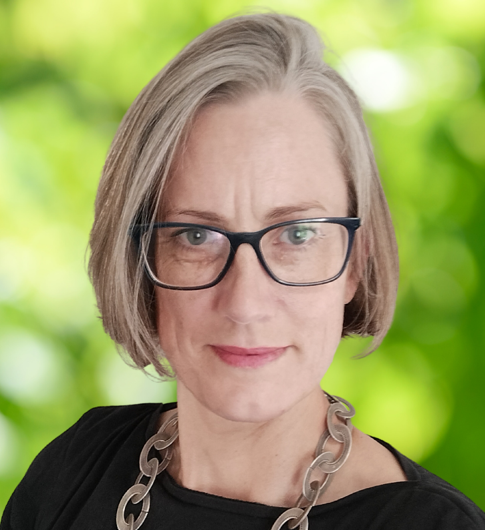Bongi Mbuli, our Comms Spotlight for this week, is the Executive Head, Corporate Communications at Vodacom. Her first job as a researcher laid the foundation for what has become a rewarding career in Communications. In this interview, she talks to us about how communications professionals can position themselves to add value in an organisation and the skills required to stay relevant in today’s world.
What do you do as the Executive Head, Corporate Communications at Vodacom?
My role is to oversee organizational communication across the Vodacom Group. I am responsible for designing and executing a range of employee communication and engagement initiatives, making sure that our talent is kept informed, engaged, and connected to the business strategy and company purpose. I lead a team of multi-talented people who help bring our strategy and purpose to life.
Take us back to the beginning of your career journey. How did you begin?
As a High-school student, I was a keen learner and an active participant in language-related activities such as debate and public speaking, which build my interest in journalism. And so I enrolled in a degree in Communications Science with the University of South Africa, where I was also involved in the Campus newsletter and also served on the Communications Science Students Association committee.
I then went on to work for a local community radio station to gain some media experience before securing my first paying job as a researcher, which was not related to communications but, in hindsight, I realise that this is where I developed my interest in people and their experiences as candidates. This role exposed me to a world of employer branding and recruitment marketing, which was not defined then.
Now, I look back and I’m grateful for that experience which planted a seed that made me want to know more about employees, current and potential, as audiences of corporate messaging.
With your experience working in various industries and countries across Africa, what will you say are some of the key skills comms professionals need to stay relevant in the world today?
I think there’s a myriad of skills that comms professionals need to stay relevant; more so as the profession continuously evolves beyond information dissemination. With increasing shifts towards storytelling, creative content packaging, multichannel management, and active stakeholder engagements – there are unique skills for each of these, and learning and continuously harnessing them is a matter of hygiene really.

What I do believe is critical to success is attitudinal and personal orientation in terms;
– In truth, the world and the profession are continually evolving. As a comms professional, oftentimes you are the one facilitating and delivering the shifts as they happen. Now this means you won’t always have all the answers to your 5 W (Who, What, Why, Where, When) and then some (How, So what) – and so you figure it out and build the train as it moves. If there’s one thing COVID-19 has taught me in my role, is to be comfortable with ambiguity. Trust yourself and what you know, reach out to your stakeholders and consider your audience, and you will find there’s always a way through.
– Open-mindedness. It is important to be open-minded and listen to and consider viewpoints outside of your own, especially when working across different geographies. This means taking time to learn about the different audiences, their ways of receiving and interpreting information, and embracing it.
– There’s a responsibility that comes with communicating. Once you understand what role the information you disseminate plays in terms of shifting perception, creating new impressions, or even helping inform decision-making, you will find there’s a greater meaning behind what you do, and that you must be accountable not only to the information and its integrity, but also the people you’re communicating to and on behalf of.
– As a writer, you are naturally inclined to ask questions, and I believe this is perhaps the one strength we have as comms people that we don’t use enough. Curiosity is important to not only understand what you’re trying to achieve. It can also help you discover new information, uncover alternate ways of doing things and explore different angles. Curiosity is not only good for you as a writer. It’s best for you as a learner.
What challenges have you faced in your journey so far and how were you able to overcome them?
In my career, I have worked across the disciplines of advertising, marketing, content management, employer branding, and communication. There were times when it felt like my career was a bit unstructured – more explorative if you will. But what has kept me going was a strong sense of curiosity, wanting to know more and challenge myself.
I have since learned the importance of role purpose. Understand what you’re doing and why you’re doing it, then you can look past tittles and job families but rather focus on the outcome and you how contribute towards it.
In your opinion, how can comms professionals position themselves to continually add value to their organisations?
Carve out your space and occupy it, boldly and authentically. The truth is that organizations need comms professionals to help them connect with the various stakeholders. It’s in how you connect with your employees and the business’ stakeholders that value is demonstrated.
So, be bold, make decisions, and execute. You’re only as good as your last job, and that means you must show up every day as if it’s your first day.
What career advice would you give your younger professional self?
Find your voice, trust yourself and your abilities, and don’t let perfection get in the way.
The Comms Spotlight is a weekly segment where we feature communications professionals across Africa doing amazing work. Want to be featured or know someone we should feature? Send an email to letstalk@thecommsavenue.com.





